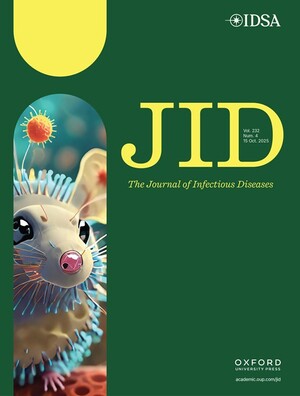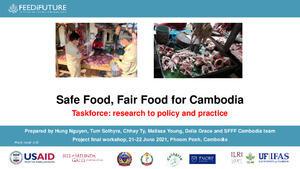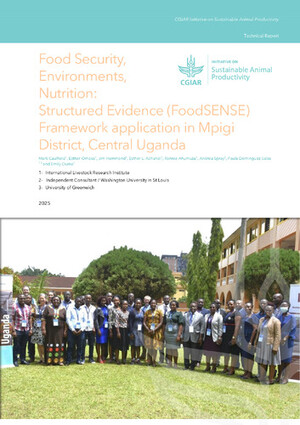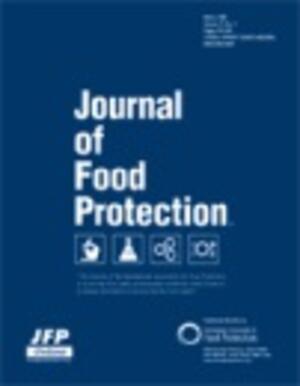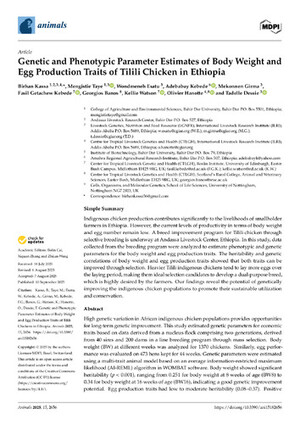
Consumers do care! Incentivizing food safety through a market-based pull–push approach
Abstract
Background: Informal markets are vital to food and job security across many low- and middle-income countries (LMIC). There is emerging data on microbiological food safety hazards and risks along food supply chains that allow targeting mitigation options. Efforts include training in better practices and technologies, but these have mostly targeted production, neglecting the market-based processing and retail level, where much cross-contamination occurs, exposing the final consumer to risk. Poor practices are largely due to a lack of knowledge and appropriate technology but also lack of incentives to change poor practices. Previous studies have shown that even poor consumers do care about the safety of their food but have no alternatives in the market or little power to demand for safer food. Objectives: This four-year project (2019 to 2022) investigates if consumer demand can provide the same incentive or "pull approach" for microbiological food safety in LMIC as it has done in high-income countries. It also builds capacity of value chain actors to respond to demand and of regulators to provide an enabling environment (the “push approach”). At the same time, it strengthens food safety capacity at national level through generating evidence on the national burden of foodborne diseases and selected hazards and risks in chicken meat and vegetables. Methods: The project is organized in seven technical work packages: 1) Estimating burden and cost of key foodborne illnesses in Burkina Faso and Ethiopia; 2) Understanding the poultry and vegetable value chains in urban markets in Burkina Faso and Ethiopia; 3) Quantitative microbial risk assessment and cost-effectiveness analysis of candidate market-based interventions; 4) Build capacity and motivation of regulators to manage food safety (intervention 1, push approach); 5) Empower market-level value chain actors to manage food safety (intervention 2, push approach); 6) Design and implementation of a consumer campaign (intervention 3, pull approach); 7) conduct an impact assessment of the push-pull intervention. Expected results: Investments that improve public health are considered highly rewarding. With this project we aim to achieve measurably safer food, credentialed capacity in regulators and value chain actors, improvements in knowledge and practice among value chain actors, and improvements in food safety awareness and practices among consumers.
Citation
Roesel, K., Zwietering, M., Wagenberg, C. van, Havelaar, A., Alonso, S., Roothaert, R., Tacken, G., Ruben, R., Amenu, K., Ouattara, L., Lindahl, J., Ramasamy, S., Danyluk, M., Dione, M., Terefe, Y., Guadu, T., Tarpaga, V., Kaboré, D., Lenjiso, B.M. and Grace, D. 2019. Consumers do care! Incentivizing food safety through a market-based pull–push approach. Presentation at an International Food Safety Conference, Nairobi, Kenya, 22 May 2019. Nairobi, Kenya: ILRI.





